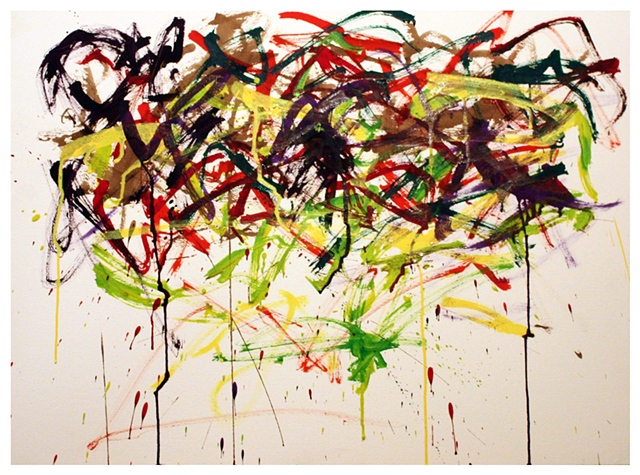
I split my time between Lincoln, Nebraska and Santa Fe, New Mexico, where I also maintain a studio.
I tend to work in series. I will find some starting point, sometimes an idea or concept, sometimes an image. Then work with it until I think I have exhausted it, at that point I will set them aside and look for something new. The series are loosely based on sets of rules or parameters. After a few new series I'll go back to the ones I set aside and I usually will find something there to get me going again. I am always experimenting with new materials and methods. Sometimes the idea dictates what materials I will use and other times the materials will dictate the idea. I try to “show” rather than “tell” in my work. It is not narrative, it doesn’t tell a story. It is about experience and can be experienced differently by everyone who encounters it. Over time, the painting can be experienced differently by the individual viewer as well. The painting won't change, but hopefully you will and then the painting's meaning will be different. Sometimes it is about a moment and sometimes it is about forever. Size does not matter but scale does. Usually the image or the idea will let me know when the size is wrong. It is the same in literature; ideas that work as haiku poems do not make great epic Russian novels. I see quick sketches in charcoal or ink as haikus, large oils on canvas or linen are the ideas that need a novel to carry them. As the psychologist Carl Rodgers said, "That which is the most personal, is the most universal." My work is inner driven, I see myself as filter of culture and I am having a conversation with other artists through my work. I am just as interested in reading the biographies, writings and letters of artists as I am in their work. I want to know what they were thinking when they did the work. I want to get at their ideas and starting points and see where they take me anywhere from 10 to 500 years later. In that sense, all my works are self-portraits of what I am thinking and feeling. My responsibility is not to the audience but to the idea.